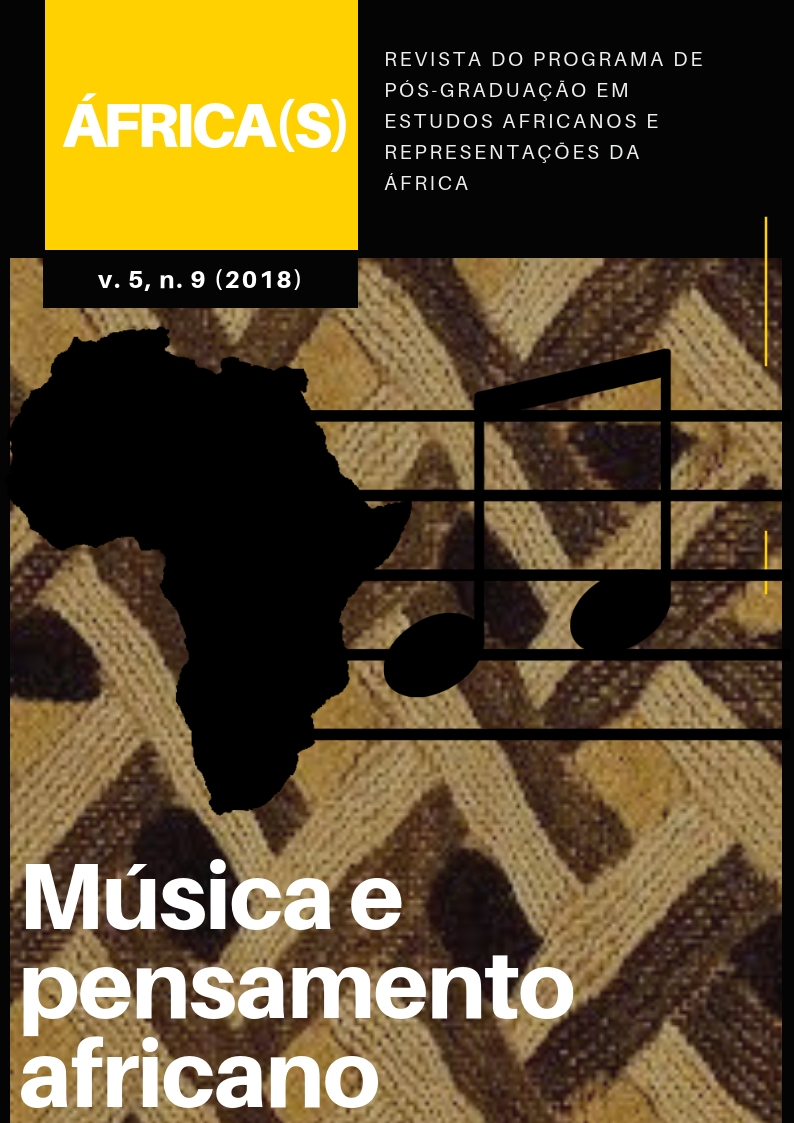HEIDEGGER’S EXISTENTIAL AUTHENTICITY AS MANIFEST IN ZULU DANCE-SONG PERFORMANCESPOST-1994
Resumo
HEIDEGGER’S EXISTENTIAL AUTHENTICITY AS MANIFEST IN ZULU DANCE-SONG PERFORMANCESPOST-1994
A AUTENTICIDADE EXISTENCIAL DE HEIDEGGER COMO MANIFESTO NUMA PERFORMANCE ZULU DE DANÇA E MUSICA APÓS 1994
_____________________________________
ABSTRACT: This paper aims to describe the concept of Heidegger’s existential authenticity as produced or pursued through dance-song performances by the Zulu people post-1994. It also attempts to explain the bases for some opposingviews regarding what is perceived as “authentic” and “inauthentic” in Zulu dance-song practices. The paper addresses the problem that is rooted in the definition of the concept of “authenticity” and “inauthenticity” within broader Zulu cultural expressions. The conceptual framework for existential authenticity and inauthenticity developed by Martin Heidegger was therefore chosen to be used as the channel for analysing and interpreting data. This was achieved through utilizing both primary and secondary data collection and analysis methods which includes interviewing experts and practitioners of dance-songs as well as archival documents and scholarly articles about Zulu dance-songs. The results indicated that a person is not invariably “authentic” or “inauthentic”. In fact, there is no authentic self; one can only momentarily be authentic in different situations.The paper concludes by describing the significance of the results and impact of this research on the general field of study of authenticity and inauthenticity in the Zulu dance-song performances post-1994.
Keywords: Ingoma dance; Zulu; Existential; Authenticity.
_____________________________________
RESUMO: O presente artigo visa descrever o conceito heideggeriano de autencidade existencial no contexto na performance de dança e música do povo Zulu pós 1994, além de explicar os embasamentos de posições contrastantes a respeito do que é percebido como “autêntico” ou “não-autêntico” nas práticas em questão, definindo esses conceitos de acordo com expressões culturais zulus mais amplas. O aparato teórico desenvolvido por Martin Heidegger para a compreensão da autenticidade ou não-autenticidade existencial foi aplicado como pauta para a análise e interpretação de informações oriundas de fontes primárias e secundárias incluindo coleções de aquivos, entrevistas com músicos-dançarinos, bem como artigos científicos. Os resultados indicam que uma pessoa não é invariavelmente “autêntica” ou “não-autêntica”, mas sim, que não há em verdade um eu autêntico, visto que a autenticidade se dá de forma momentânea e contextual.
Palavras-chave: Ingoma (dança); zulu; existencialismo; autenticidade.
Downloads
Downloads
Publicado
Edição
Seção
Licença
O encaminhamento dos textos para a revista implica a autorização para a publicação.
A aceitação para a publicação implica na cessão de direitos de primeira publicação para a revista.
Os direitos autorais permanecem com os autores após a publicação na Revista África(s).
Os autores dos textos assumem que são autores de todo o conteúdo fornecido na submissão e que possuem autorização para uso de conteúdo protegido por direitos autorais reproduzido em sua submissão.





